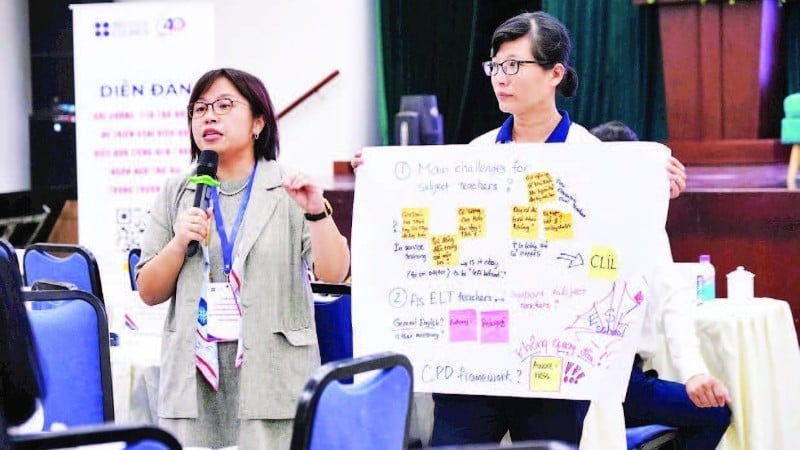
Head of the National Foreign Language Project Management Board Nguyen Thi Mai Huu said: On December 22, 2017, the Prime Minister approved the adjustment and supplementation of the Project on teaching and learning foreign languages in the national education system for the period 2017-2025. On that basis, the Ministry of Education and Training issued many important programs such as: English familiarization program for preschool children, Pilot English general education program for all levels of the 10-year system, 2018 general education program for foreign languages... Thereby, foreign language teaching and learning activities are unified and expanded nationwide.
If before 2018, preschool children were not officially introduced to English, first and second graders had not yet learned a foreign language, the percentage of students from grades 3 to 12 studying the new program was only under 36%, then up to now, 28.5% of preschool children are introduced to English, nearly 100% of students from primary to high school are taught a foreign language in the 2018 General Education Program. Notably, many localities have taught foreign languages other than English. These figures show a clear change in awareness as well as efforts in implementing the project in practice.
Not only stopping at general education, most higher education institutions, including the military and police sectors, have also determined the roadmap to apply foreign language proficiency output standards according to the 6-level foreign language proficiency framework for Vietnam. The expansion of advanced training programs and international cooperation in foreign languages has strongly promoted the use of foreign languages in teaching and learning, helping students and lecturers improve their qualifications. Up to now, the rate of English lecturers in colleges and universities under the Ministry of Education and Training meeting level 5 or higher competency standards has reached 98%, a significant increase compared to previous years. Along with that, the foreign language learning movement among students has spread widely, with many clubs, extracurricular activities, and useful playgrounds, helping them practice communication skills and confidently integrate.
After 8 years of implementation, the project has contributed to innovating foreign language teaching and learning from programs, content, methods to testing and assessment forms, approaching modern trends in the world . The foreign language ability of students, intellectuals and workers has been significantly improved, meeting the requirements of study, research, international exchange and participation in the labor market. The number of candidates exempted from foreign language exams in the high school graduation exam thanks to international certificates such as IELTS, TOEFL, TOEIC has increased steadily over the years, from 28,620 candidates in 2021 to 67,000 candidates in 2024...
From the implementation in the area, Deputy Director of the Department of Education and Training of Ho Chi Minh City Nguyen Bao Quoc said: Although the city has proactively introduced foreign languages into schools since 1998, only when implementing the project has teaching and learning been organized more systematically and comprehensively, aiming at specific goals. Schools have boldly applied many diverse models such as teaching English from grade 1, bringing supplementary English, Math-Science English into primary school teaching; at the same time expanding the teaching of other languages such as Japanese and Korean. This shows the adaptability and initiative of localities in implementing the project.
Implementing the project, Hanoi National University of Education has implemented 7 teacher training programs to teach subjects in English such as: Mathematics, Physics, Chemistry, Biology, Information Technology, Primary Education - English, Preschool Education - English. Every year, about 250 students graduate from these programs, most of whom achieve level 4/6 and have jobs in their fields. In training, the school has coordinated with northern provinces and cities to train foreign language skills for nearly 1,000 teachers and pedagogical skills for nearly 4,000 teachers. This result is highly appreciated by localities, especially in the implementation of the 2018 General Education Program.
In the coming period, Hanoi National University of Education will focus on three pillars, which are the application of advanced technology, especially artificial intelligence (AI) in teaching and learning English and English-language subjects, associated with a personalized digital learning platform; developing a team of foreign language lecturers in both quantity and quality, coupled with appropriate remuneration policies; innovating testing and assessment with standardized question banks, applying technology, ensuring objectivity and accuracy. The school aims to expand the training of teachers teaching subjects in English, building a typical general education model to make English a second language; and at the same time standardizing output associated with international integration requirements.
Permanent Deputy Minister of Education and Training Pham Ngoc Thuong said: In the current trend of global integration, training and fostering a generation of Vietnamese students and citizens to become global citizens is an inevitable requirement. The development, promulgation and implementation of the Project on teaching and learning foreign languages in the national education system has met these requirements and demands. Over the past years, the team of public and non-public teachers, teachers at foreign language centers and students have made efforts to complete the goals, creating the success of the project.
Deputy Minister Pham Ngoc Thuong also noted that teaching and learning foreign languages plays a very important role, both as an intrinsic requirement and as a social need and a development trend. Education in general and teaching and learning foreign languages in particular have never had so many favorable conditions but at the same time faced many challenges as they do today. Due to the characteristics of different population sizes, locations, and regions, the first thing to do is to raise awareness and social thinking about the role of learning foreign languages. On that basis, the Management Board of the National Foreign Language Project needs to advise on how to effectively use the experiences learned in the past, promote the value of the project, and build a more appropriate, practical, and effective implementation roadmap in the next phase.
Source: https://nhandan.vn/tao-chuyen-bien-toan-dien-ve-day-va-hoc-ngoai-ngu-post913412.html



![[Photo] Super harvest moon shines brightly on Mid-Autumn Festival night around the world](https://vphoto.vietnam.vn/thumb/1200x675/vietnam/resource/IMAGE/2025/10/07/1759816565798_1759814567021-jpg.webp)













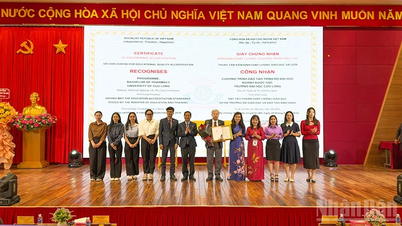




![[Photo] Super harvest moon shines brightly on Mid-Autumn Festival night around the world](https://vphoto.vietnam.vn/thumb/402x226/vietnam/resource/IMAGE/2025/10/07/1759816565798_1759814567021-jpg.webp)































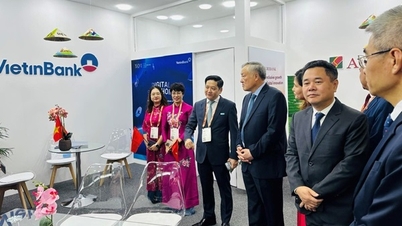
















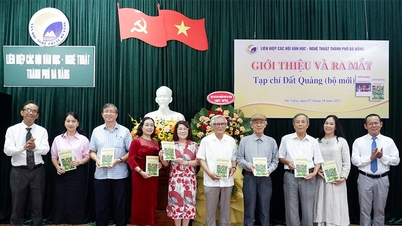

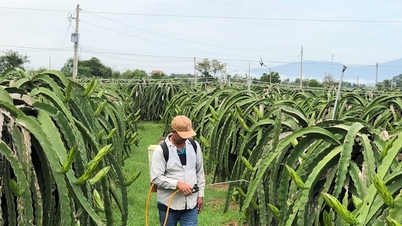



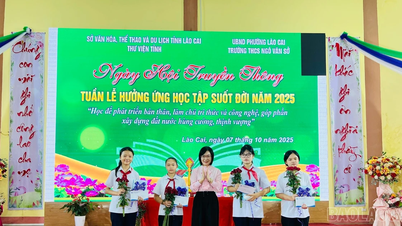
















Comment (0)